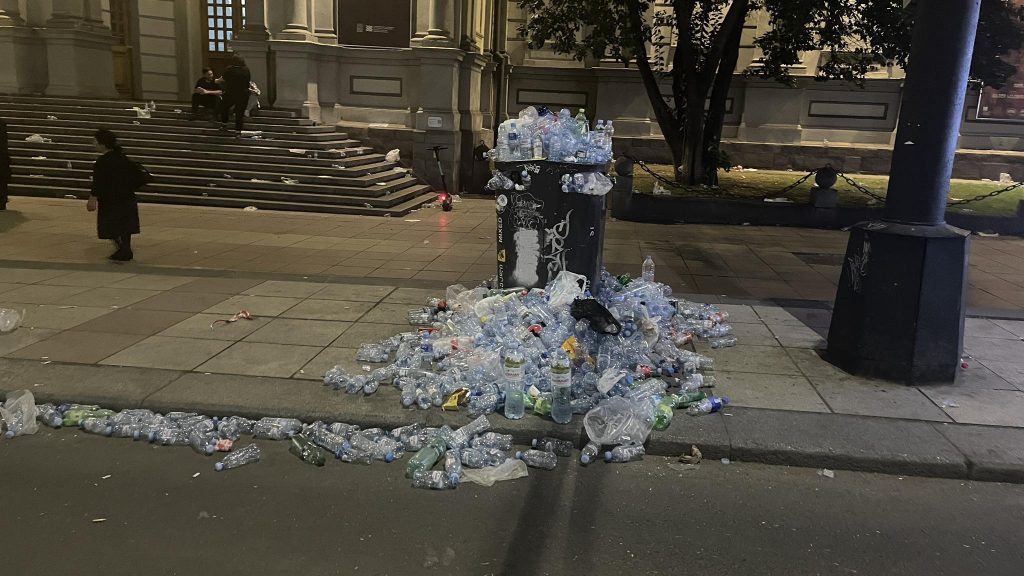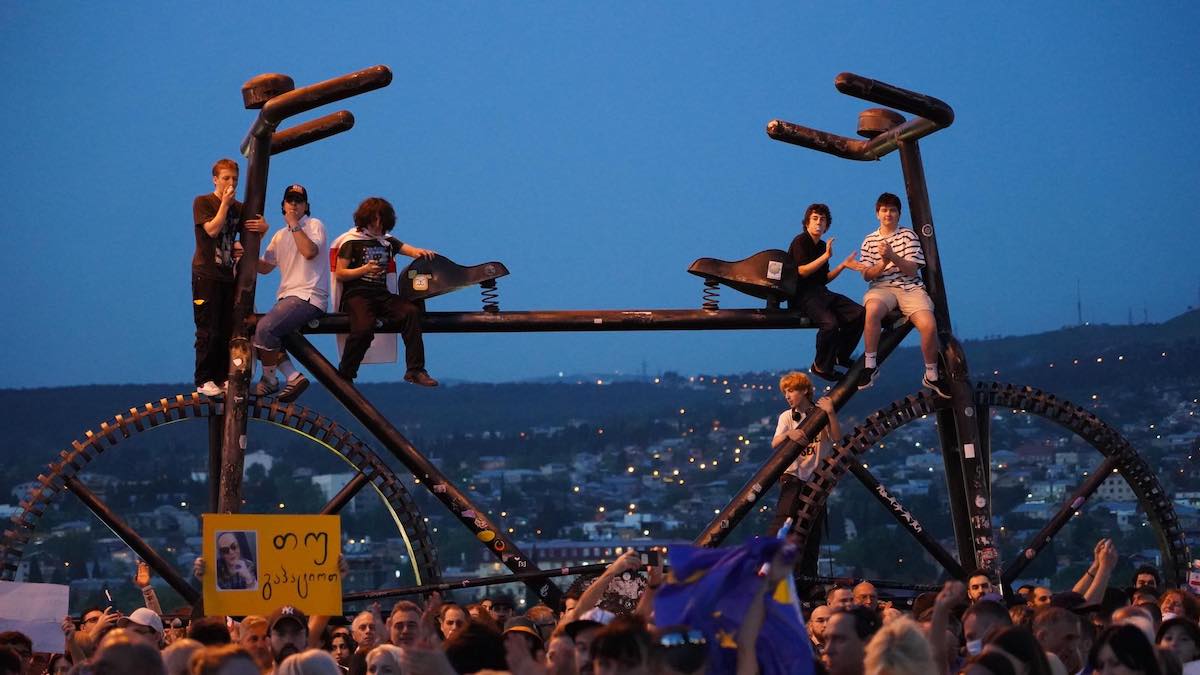Ruling party rally in Tbilisi: No EU flags or posters - Report, photos, videos
Rally in support of foreign agents bill in Tbilisi
The rally in support of the “foreign agents” bill, organized by the authorities in front of the parliament building on April 29, was large-scale but markedly different from the protests against this bill, which have been ongoing for almost a month on Rustaveli Avenue.
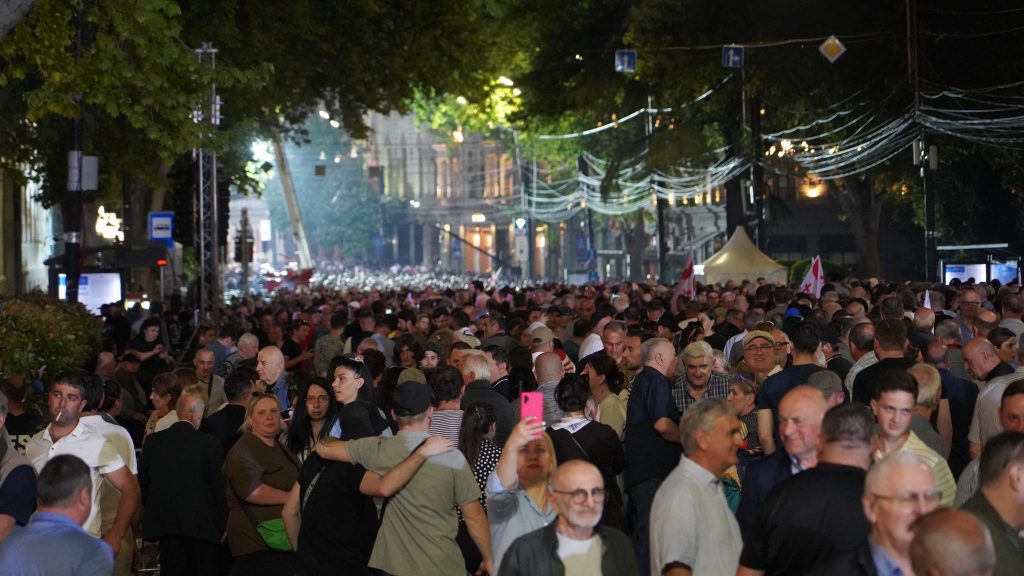
Opponents of the “foreign agents bill,” commonly referred to as the “Russian law” within society, opted not to hold their demonstration in front of the parliament on April 29 to avoid a civil conflict. However, on the eve of April 28, a large-scale protest against the “Russian law” took place in downtown Tbilisi, with approximately 150,000 people participating.
Today, on April 30, the second reading of the “foreign agents” bill is scheduled in parliament. Simultaneously, a protest action against this bill has been announced.
At the ruling party’s rally: Conversations with participants
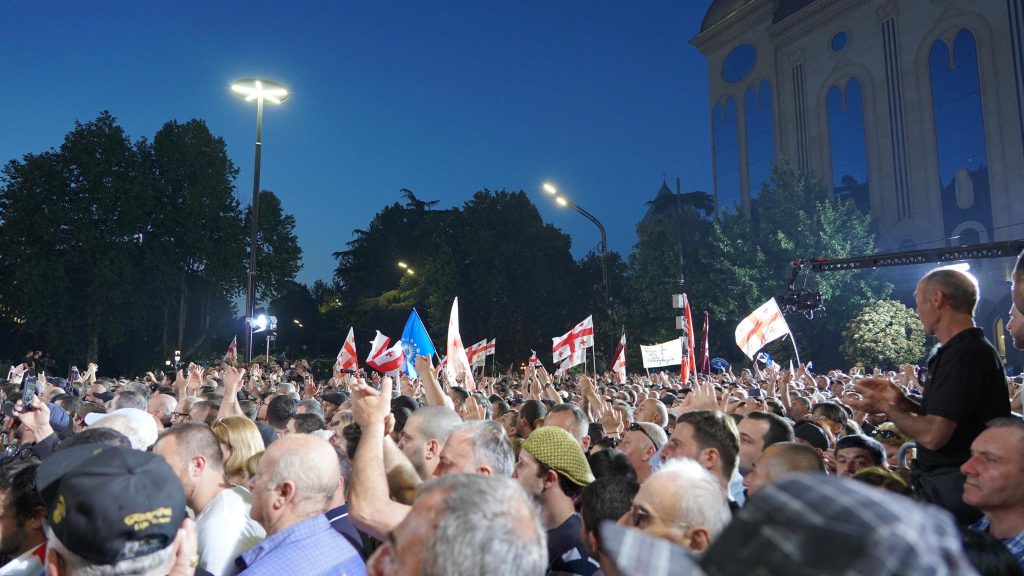
People began gathering in front of the parliament from 6:00 PM onwards. Republic Square, Freedom Square, and the surrounding areas turned into a large parking lot for dozens of buses and minibuses that brought residents from the regions.
The government mandated employees of budgetary organizations to participate in the rally. Georgian media published a series of investigations on how administrative resources were used to compel employees of state institutions, schools, and kindergartens to come to Tbilisi to participate in the ruling party’s rally.
The slogan of the rally was: “Language, Homeland, Faith.”
Large screens were installed along Rustaveli Avenue every 50 meters so that those attending the rally could see and hear the speakers.
The politicians’ speeches began at 8:00 PM. Towards the end, the honorary chairman of the ruling party, Bidzina Ivanishvili, delivered anti-Western statements and accusations. Here’s a detailed account of what he said.
A notable distinction from the massive protests was that participants in this rally had practically nothing to express. Hardly anyone in the crowd held signs with calls to action, demands, or statements. The only thing some participants had in their hands were sheets with the names of cities from where they were likely brought to participate in the rally: Kutaisi, Batumi, Kobuleti, Ozurgeti, Chokhatauri, and others.
In the midst of the rally’s thousands-strong crowd, only a few European Union flags were waving, mostly Georgian flags and party flags of the “Georgian Dream.” The EU anthem, which is typically a necessary component of protests organized by opponents of the government, was never played.
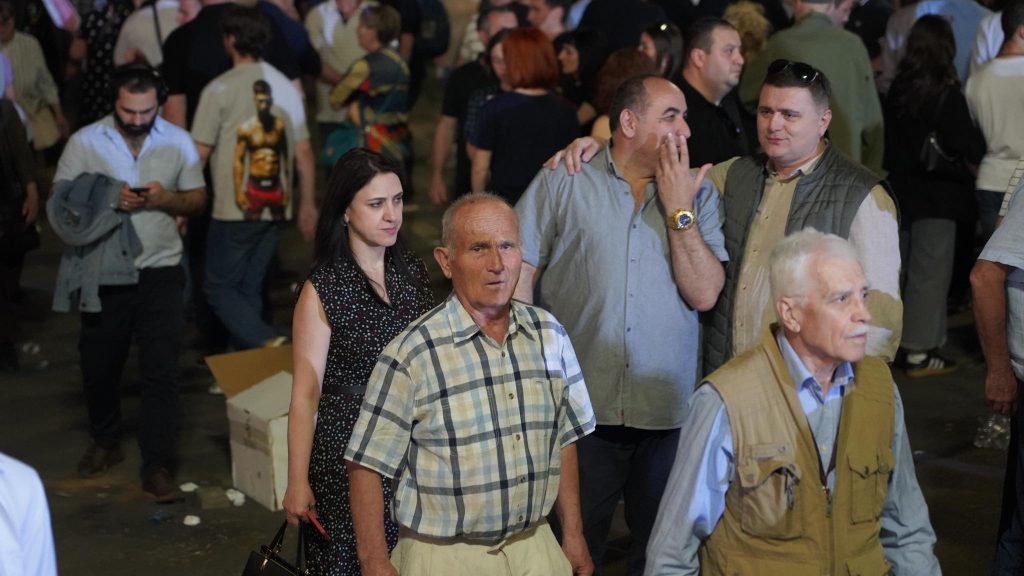
On average, the participants of this rally were significantly older than those who attend protests against the “Russian law.” Among the youth present were members of the youth wing of the “Georgian Dream” party. They stood in the front rows before the podium and loudly applauded the leaders of the “Georgian Dream.”
Another noticeable difference between the rallies of the ruling party and the opposition was the absence of young people dressed in bright casual clothes, with modern hairstyles, among the former.
Most rally participants were reluctant to engage with journalists. As soon as they spotted a camera, they would turn away to avoid being filmed. This, too, was a significant distinction, as protesters against the “Russian law,” on the contrary, seek opportunities to express their opinions.
In conversations with JAMnews, only a few individuals agreed to explain why they were participating in the rally, but none were willing to provide their names. A clear answer was never given. People mostly echoed the ruling party’s propaganda slogans. Most simply said: “Language, Homeland, Faith” – and then turned away and left.
“The government prevented war, and we must appreciate that. If the ‘National Movement’ (Mikheil Saakashvili’s party) were in power, we would already be at war,” said a resident of Senaki, who declined to give his name.
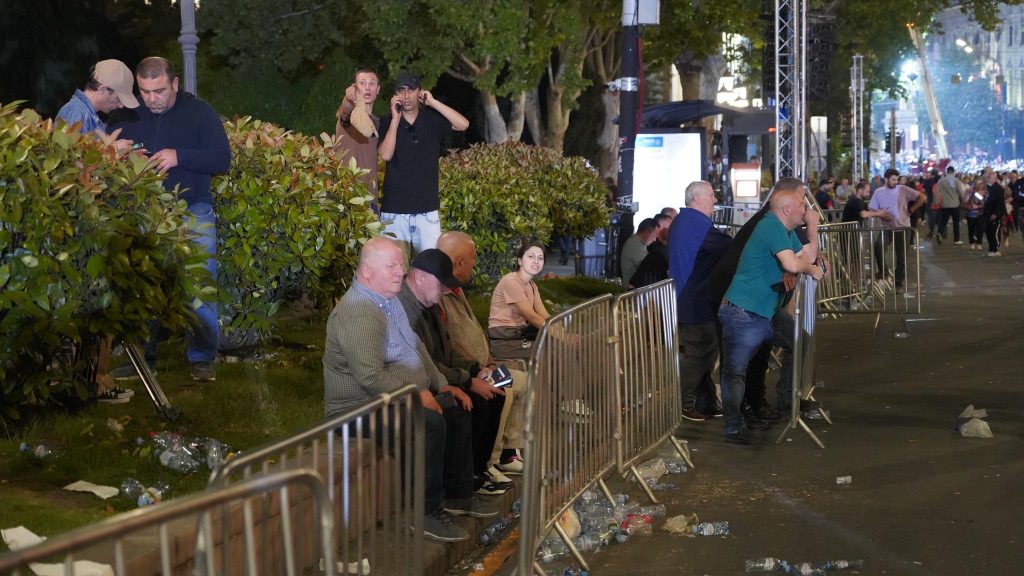
Some participants of the rally were convinced that they were there to support the adoption of the “anti-LGBT propaganda” law.
“The husband and wife should be a man and a woman, not two men, that’s why I came here. So that our children don’t stray from the path, and so that we all belong to the church,” said a young woman from Gurjaani.
There were also those who said they supported the transparency law because “transparency is good, and we should know how the money coming into the country is being spent.”
The scene in front of the parliament and its surrounding perimeter were enclosed by iron fences. A very large number of police officers were mobilized.
People also gathered in adjacent areas on sidewalks, curbs, and lawns – near Kashveti Church, near the opera house building, on the avenue towards Rustaveli metro station.
Many began to leave even before Bidzina Ivanishvili’s speech – they faced a long journey home to their regions. And as soon as Ivanishvili finished speaking, the area emptied out almost immediately.
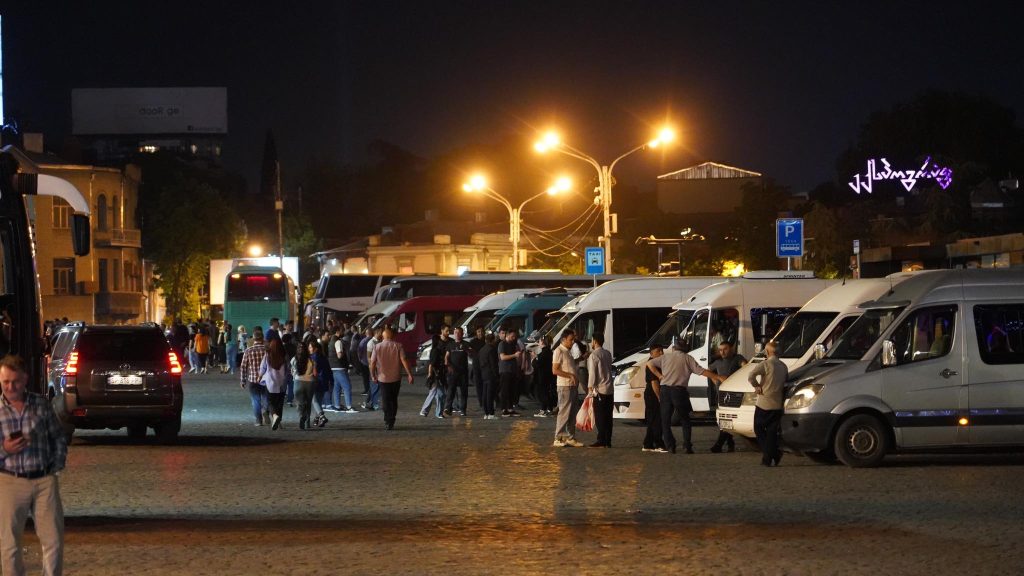
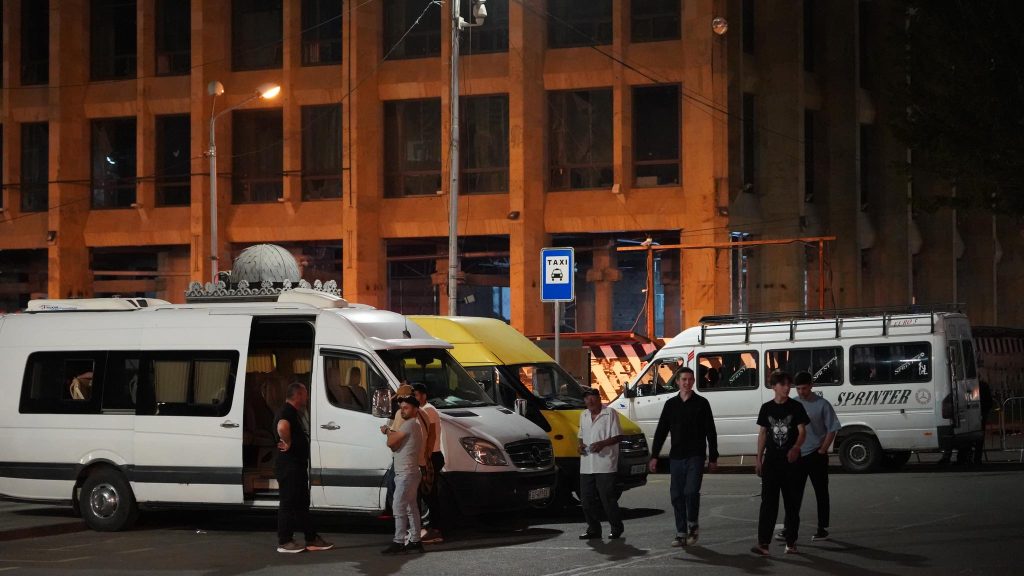
A minor incident occurred on Rustaveli Avenue. From one of the buildings, a loud audio recording began playing with the words: “No – to the Russian law,” “No – to the Russian government.” Then, the broadcast switched to the song “Glory to the Party,” which was always played during public gatherings and celebrations during the Soviet era.
Some of the rally participants recorded this on video, while others cursed and condemned those who played the music.
At the end of the rally, Rustaveli Avenue and Freedom Square were littered with tens of thousands of empty beer, juice, and water bottles, cigarette butts, and sunflower seed shells. In some places, unopened packs of water bottles remained standing.
